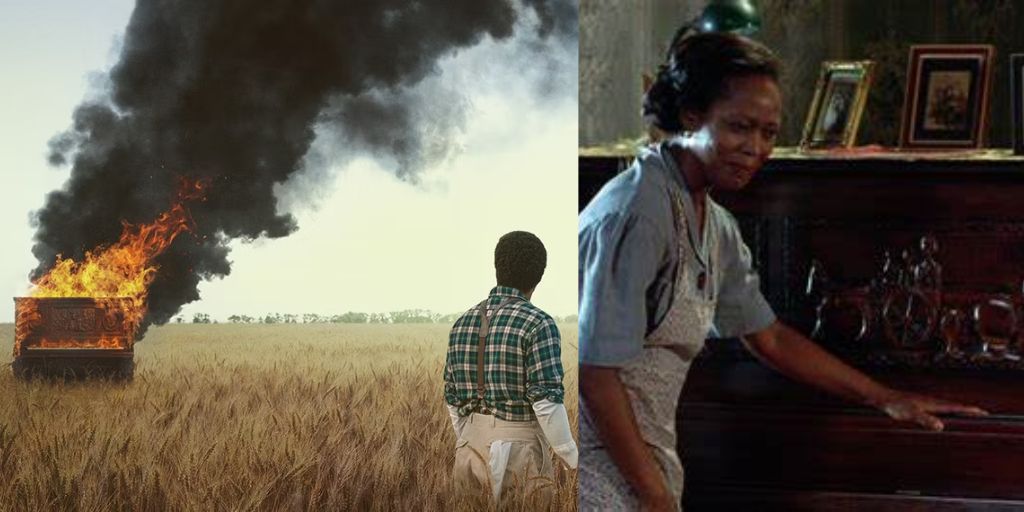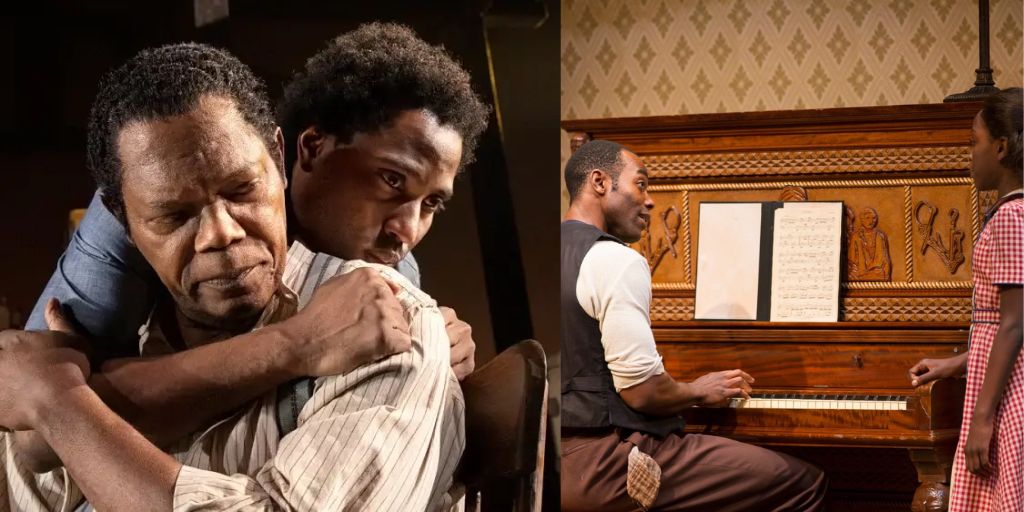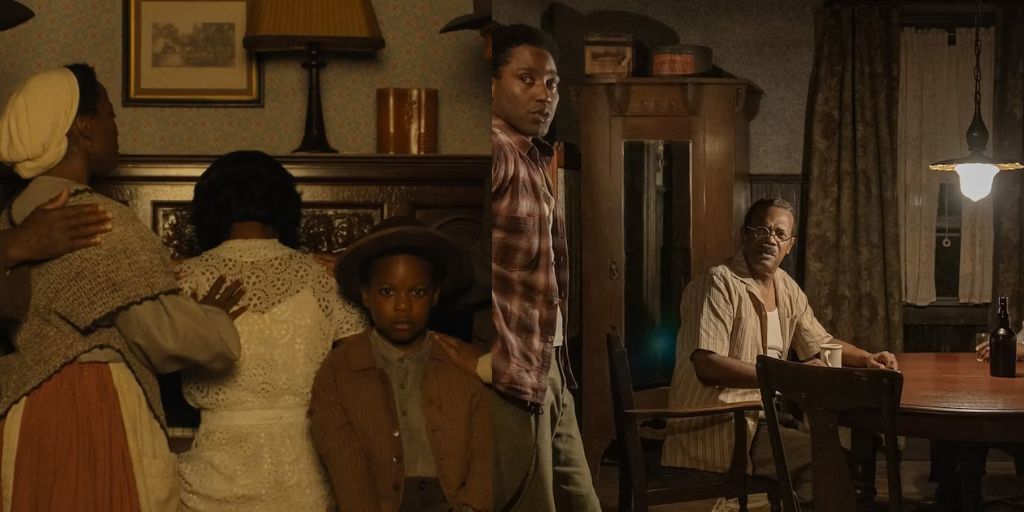Over the past few years, playwright August Wilson’s work has inspired some amazing films. In 2016, Fences was released, directed by Denzel Washington.
It was nominated for Best Picture and won Viola Davis a well-deserved Oscar for Best Supporting Actress.
In 2020, Ma Rainey’s Black Bottom won two Oscars and earned Chadwick Boseman a posthumous nomination for his final performance.
Now, the latest addition to this series of Wilson adaptations is The Piano Lesson, produced by Denzel Washington and directed by his son, Malcolm Washington.
This film also stars Denzel’s other son, John David Washington. While The Piano Lesson may not be as strong as the previous two adaptations, it is still a solid presentation of Wilson’s work, telling a compelling story that holds the audience’s attention.
What Is ‘The Piano Lesson’ About?
The Piano Lesson centers around Boy Willie Charles (John David Washington), who arrives in 1936 Philadelphia with his friend Lymon (Ray Fisher) to visit his sister Berniece (Danielle Deadwyler) and his uncle Doaker (Samuel L. Jackson). Willie and Lymon have come with a truckload of watermelons to sell.
Willie, a sharecropper, wants to buy the land where his ancestors worked as slaves. He already has part of the money and plans to earn more from selling the watermelons.
However, he needs the rest of the money from selling the family’s piano, a cherished heirloom in Berniece’s possession, which is decorated with carvings of their enslaved ancestors.
To Boy Willie, selling the piano means a chance to escape his family’s hardships and reclaim the land his ancestors once worked. He sees it as a way to move forward and leave behind a painful history.
On the other hand, Berniece views the piano as a symbol of their family’s legacy, one she refuses to part with, despite Boy Willie’s repeated insistence.
As Boy Willie tries to sell the piano to achieve his goal, it becomes clear that the past is not so easily forgotten, and the spirits of their ancestors seem to haunt them, reminding the family of the piano’s significance.
Malcolm Washington’s Approach to The Piano Lesson
In his first feature film, Malcolm Washington does a commendable job of bringing this stage play to life on screen. Most of the story takes place in Doaker and Berniece’s house, but Washington skillfully makes the setting feel larger than just one room.

We see Boy Willie in the fields he hopes to own, Willie and Lymon enjoying themselves at a nightclub, and the ghosts that haunt the characters create an eerie atmosphere. This haunting effect would be difficult to replicate on stage.
While Ma Rainey’s Black Bottom was confined to one location, Malcolm Washington takes inspiration from Denzel’s Fences, finding ways to expand the world of the play while staying true to the original material. It may not be a dramatic change, but it adds a sense of scale to the story.
That said, The Piano Lesson still feels more like a stage production than the other Wilson adaptations.
Co-written by Washington and Virgil Williams, the script maintains a focus on the central conflict between Boy Willie and Berniece over the piano, which highlights the limitations of a story originally written for one location.
However, in the film’s final act, this confined setting becomes an asset, as the tension builds, turning the small house into a claustrophobic and unnerving space.
By keeping the characters close together, the film creates a nightmarish atmosphere that only cinema could achieve.
Standout Performances Upgrade The Piano Lesson
Much of the cast of The Piano Lesson comes from the 2022 Broadway revival, which won the Tony Award for Outstanding Revival of a Play.
John David Washington delivers a strong performance, though his portrayal at times feels more suited to the stage, especially when he passionately argues about selling the piano.
Samuel L. Jackson, Ray Fisher, and Michael Potts, who plays Wining Boy Charles, adapt their performances for the screen more effectively. Fisher, in particular, makes his quiet character stand out as he finally reveals his desires in the film’s third act.
However, it is Danielle Deadwyler who truly shines in The Piano Lesson. Unlike the other major actors in the film, Deadwyler did not perform her role on stage, yet she brings a commanding presence to her portrayal of Berniece. Her intensity, grounded in love and determination, dominates each scene.
As seen in her underrated performance in 2022’s Till, Deadwyler has a remarkable ability to convey power through her voice and expression.
In the final act, when the story takes a darker turn, Deadwyler seamlessly shifts into this horror-like tone, showing once again that she is a remarkable talent deserving of greater recognition.
Among the recent Wilson adaptations, The Piano Lesson may struggle the most to fully break away from its stage roots.

However, Malcolm Washington proves himself as a capable director, expanding the story while respecting the original material. The cast, particularly Deadwyler, brings life to Wilson’s words, delivering performances that capture the play’s emotional depth.
Despite its challenges, the film offers a unique perspective on family, heritage, and the haunting effects of history. The way it shows the relationship between the characters provides a rich viewing experience.
The Piano Lesson stands out as a significant and thought-provoking addition to the growing list of films based on August Wilson’s plays.




